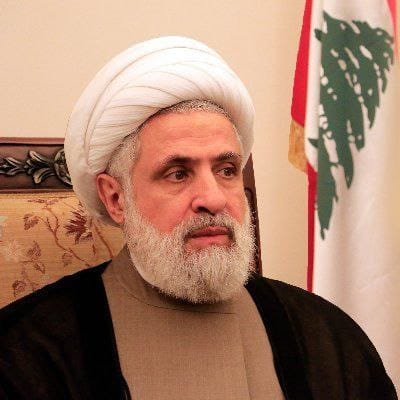Lebanon-based militant group Hezbollah announced Tuesday that Sheikh Naim Qassem, previously its deputy secretary, has been elected as its new chief. This decision comes after the recent death of the group's former leader, Sayyed Hassan Nasrallah, in an Israeli air strike on September 27. Qassem, who has been with Hezbollah for over 30 years, assumes leadership at a critical moment of rising tensions in the region.

Hezbollah's governing Shura Council agreed on the leadership transition, naming Qassem as the new secretary general in a statement released on Tuesday. Nasrallah's death marked a significant blow to the group, as he had led Hezbollah since 1992 following the assassination of the former chief Abbas al-Musawi by an Israeli helicopter strike. Since then, Nasrallah's presence became a defining figure for the group, although he largely remained out of public sight after the 2006 Lebanon-Israel war.
Qassem's role within Hezbollah has been instrumental over the years, and his appointment as leader signals a continuity of the group's agenda. He first joined Hezbollah in 1982, the year it was founded in response to Israel's invasion of Lebanon. Over the decades, he has held various significant roles, including the general coordinator of Hezbollah's parliamentary election campaigns since the group began contesting in 1992. Known for his diplomatic skills, Qassem often appeared as the group's spokesperson in foreign media during times of heightened tension with Israel, offering a public face for the organization.
Since Nasrallah's death, Qassem has already made three televised addresses, reaffirming Hezbollah's stance against Israel. On October 8, he described the ongoing conflict as a test of endurance between the two forces, saying, "Hezbollah will not be the first to cry." His words underscore the group's determination to continue its resistance efforts despite the recent setbacks in leadership.
Qassem is a notable figure within the group, often recognized by his white turban, which contrasts with the black turbans worn by Nasrallah and his proposed successor, Hashem Safieddine. In Shiite tradition, the black turban signifies descent from the Prophet Muhammad, whereas the white turban, worn by Qassem, typically symbolizes a cleric without such lineage.
The leadership shift follows the killing of both Nasrallah and Safieddine, who was widely speculated to succeed Nasrallah before he too was killed by Israeli forces. This double blow has posed a significant challenge to Hezbollah's hierarchy, and the selection of Qassem is seen as an effort to stabilize the organization amid these losses.
Qassem's Background and Early Influence in Hezbollah
Sheikh Naim Qassem, now 71, has been an influential figure within Hezbollah since its formation. Born in 1953 in Beirut, he joined Hezbollah in 1982, shortly after Israel's invasion of Lebanon, and quickly rose through its ranks. Known as one of Hezbollah's founding members, Qassem was instrumental in shaping its strategic and ideological framework. He earned a degree in chemistry from the University of Lebanon in the 1970s and studied religious subjects under prominent Shiite scholar Ayatollah Mohammad Hussein Fadlallah, a figure who greatly influenced Hezbollah's ideology.
Before joining Hezbollah, Qassem served as the head of the Association for Islamic Religious Education from 1974 to 1988, during which he promoted Islamic education across Lebanon. He also co-founded the Lebanese Union of Muslim Students, an organization that reflects his deep commitment to promoting Shiite Islamic values among Lebanon's youth. In 1991, following the assassination of Hezbollah's then-leader Abbas al-Musawi by Israeli forces, Qassem was appointed deputy secretary general, a role he maintained until his recent elevation to the group's top leadership.
Qassem's rise marks a new chapter for Hezbollah, with the group's future actions closely watched by allies and adversaries alike. The transition in leadership highlights Hezbollah's enduring structure despite recent Israeli assaults on its senior ranks.









